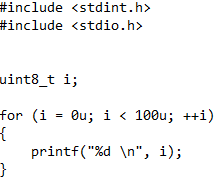For those following along, it's become a bit of a daisy chain...
It's been about 10 years since the Raspberry Pi was released to the world, and I remember everyone being excited. It was a mixture of miscommunication, promises and new technology. An affordable embedded computer that was the size of a credit card. A lot of heated debate about open source and availability, and plenty of marketing. It hit off very well, and everyone clamored to get one, and somewhat still do, and support it. With open source libraries, packages and Linux, quite the contrast to similar boards released around the same time - I think it says a lot when someone has a project and decides 'no, this is how you do it' and leads with a direction and decision and doesn't leave it open for the herd of cats.
Still, a lot of people I know have a collection of Raspberry Pi, and the meme goes 'Yes I have one, it's sat in my drawer collecting dust, I don't know what to do with it' or 'I use it for my media server... and that's about it'. While using a Raspberry Pi as a media server is not a bad thing, it's rather justified (and frankly has spun off a lot of similar products since) it's not the only thing to use a Raspberry Pi for.
Now there's a lot of accessories available, a lot of example code (like other microcontroller boards) but there still must be something about it that trips you up when creating that project. Is it limitations with the hardware? (it is mostly 3v3 after all) or is it the physical size of it? (the compute module, pico and zero start addressing this) well right now it's obviously the availability (or lack) of it, but we can't address that right now, so let's focus on what we do with it when we have one.
We're looking at expanding our content and what we ask from Raspberry Pi (Foundation/Trading) to govern our campaigns and content on the Community, and I'm interested in what you need help with, so reply and let us know, regardless of knowledge level or what you've been doing.







